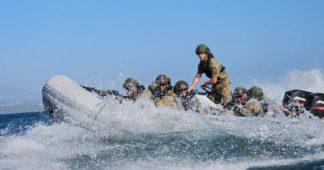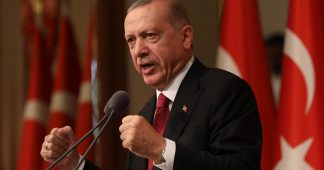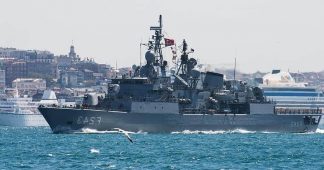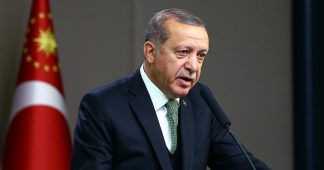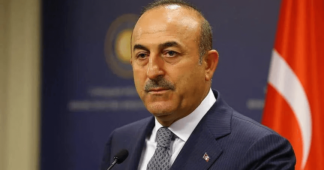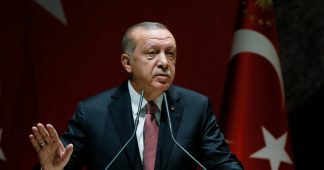Tasos Kokkinidis
Devlet Bahceli, an ally of Turkey’s President Erdogan has challenged the sovereignty of Greece’s Dodecanese islands saying that the island group has been “usurped and taken” from Turkey.
Bahceli, leader of the far-right Nationalist Movement Party, challenged the provisions of international laws and agreements.
“We cannot think of the Dodecanese without Turkey. The armament within a plan constitutes a challenge for Turkey and drags the Aegean into a vortex of tensions. The Dodecanese have been usurped and taken with foot games. For Turkey to live without the Dodecanese is a dream. Following an aggressive policy on the opposite shore of the Aegean does not benefit any country. Turkey will never abandon the Blue Homeland,” he said.
“The consequences of Greece’s actions will be severe. There are no permanent friendships or enmities between states,” he added.
Greece rebukes Turkey’s leader on the Dodecanese
The foreign ministry in Athens rebuked the Turkish politician in a statement released on Tuesday:
“The status of the Dodecanese Islands is determined by an international treaty, namely the Paris Peace Treaty of 1947.
“Greece, as a sovereign State, does not relinquish its legal and inherent right to self-defense, enshrined in Article 51 of the United Nations Charter. All the more so since Greece is threatened with war (casus belli) in case it exercises a right deriving from its sovereignty in accordance with International Law.
“Maintaining peace requires prudence and responsibility, not hostile statements. Issues pertaining to sovereignty lie outside the scope of any discussion and any revisionist views are categorically rejected,” the statement by Athens said.
Turkey’s military exercise near the Dodecanese
Bahceli’s provocation comes as Turkey is conducting a huge military exercise near the Dodecanese. The “Mavi Vatan 25” (Blue Homeland) exercise will involve 87 ships, seven submarines, 31 aircraft, 17 helicopters, 28 UAVs, seven amphibious unmanned surface vehicles (USVs) and 20,000 personnel from the Turkish Armed Forces.
Greece is concerned about the timing of the exercise which was postponed in the last two years and was seen in Athens as a sign of goodwill from Ankara, in the context of the Greek-Turkish dialogue and the policy of “calm waters” in the Aegean Sea.
Islands joined Greece after WWII
The Dodecanese — the island archipelago which means ”The Twelve Islands” — officially joined their motherland of Greece on March 7, 1948.
According to the Paris Peace Treaty of 1947 the Dodecanese islands, previously under Italian control, were ceded to Greece. This included the main islands, such as Rhodes, Kos, and Patmos, along with numerous smaller islets. The treaty required the Dodecanese to be demilitarized. Greece was prohibited from establishing military bases or fortifications on the islands, a measure aimed at ensuring regional stability and reducing the risk of future conflicts.
After having endured centuries of occupation by different powers and a campaign to strip them of their Greek identity, the islanders were finally able to join with their fellow Greeks.
We remind our readers that publication of articles on our site does not mean that we agree with what is written. Our policy is to publish anything which we consider of interest, so as to assist our readers in forming their opinions. Sometimes we even publish articles with which we totally disagree, since we believe it is important for our readers to be informed on as wide a spectrum of views as possible.
